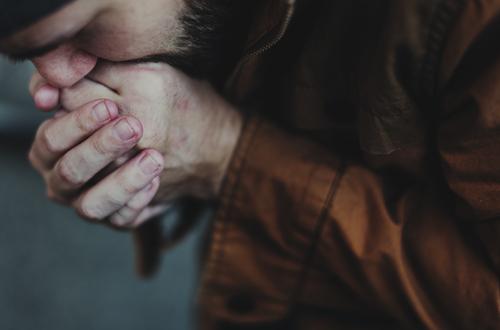Homelessness is an incredibly difficult situation to both be in and break out of. Being homeless doesn’t just mean losing a home, it means losing a complete way of life, family and friends as well as the comfort and safety of a permanent home. Possessions and memories become scattered along with hopes and aspirations.
Being homeless is an introduction to a plethora of other problems too such as poverty, loneliness, dangers from extreme weather, increased susceptibility to health concerns, and issues with the social services if there are children involved. Research has also indicated that homeless people are more vulnerable to violence, especially from the general public.
In this post, we will be discussing the dangers facing homeless people this winter and how we can support in reducing the risks that they face.

With temperatures dropping below zero, the extremely cold weather brings grave dangers for the homeless. The Office for National Statistics (ONS) estimated 726 homeless people to have died in England and Wales in 2018, a 22% increase from 2017. As freezing temperatures hit Britain, homeless shelters are made available for the homeless to spend the night; however, most shelters have inadequate space to house the growing number of homeless people. Many individuals who are living on the streets indicate that they often don’t know about the availability of assisting services.
Additionally, homeless people have a much higher risk than the general population of developing weather exposure-related conditions such as frostbite and hypothermia. These conditions, although not immediately life-threatening, have the potential to fester and develop complications over time.
We can support the homeless population by being extra vigilant, especially during winter, and by alerting local councils who can then provide sheltered accommodation. Additionally, donating towards warm clothing and food can help charities assist those who are most in need.
According to the Office for National Statistics, respiratory diseases are the leading underlying cause for excess winter deaths (EWD). During the winter months in 2017 and 2018, 84% more people died due to respiratory infections compared to non-winter months in the same period. This amounts to 17,400 people dying due to respiratory diseases. Homeless people are more likely to be diagnosed with breathing problems compared to the general public due to their prolonged exposure to cold temperatures, coupled with an inadequate diet that makes it difficult for the body to help fight off respiratory infections.
Pneumonia and chronic obstructive pulmonary disease account for the greatest number of deaths in the winter. This is because the respiratory infections expose the oftentimes malnourished bodies of homeless people, making them more susceptible to bacterial and viral infections including influenza. Homeless people are five times more likely to smoke and twice more likely to develop asthma than the general population. This, coupled with sleeping in mouldy spaces and the sharing of cigarettes, further increases the likelihood of sickness or death.
Homeless people are not just victims of economic disadvantage but acutely vulnerable to associated prevalent diseases. Many homeless people have indicated that they have very little awareness of the dangers of respiratory diseases. We can help support charities by volunteering to raise awareness of respiratory-related diseases amongst the homeless population.
Recent research from Crisis has documented homeless people to be 17 times more likely to be victims of crime, including violent assault, abuse and intimidation, compared to the general public. The report has highlighted that 8 out of 10 homeless rough sleepers have suffered from violence, abuse, or anti-social behaviour in the past year.
The threat of violence and lack of safety is taking a serious toll on the mental and emotional health of homeless people. For the homeless, it is not just surviving the cold weather, finding sufficient food to eat and protection from infectious disease that they must focus on, but also protecting themselves from becoming victims of violence. Every day is a struggle to survive.
Homeless women face a greater threat of violence and exploitation. According to Women’s Aid statistics, in 2019, 6,000 women have become homeless due to domestic abuse. Additionally, many have faced abuse and violence whilst waiting for emergency accommodation.
We can support our neighbours by extending love, support and help before they become homeless. By keeping in touch with our neighbours and supporting them during their time of need, we can help in preventing potential homelessness.
Homelessness could be synonymised with loneliness and isolation. A loss of a permanent home is a gateway to losing touch with family, friends and the social support network so vital in helping us function each day. It is vital that we maintain relationships with fellow humans to maintain our social, emotional and psychological well-being.
The first change many homeless people face is the reduction in their communication with others. Often, people walk past the homeless avoid making eye contact and try to avoid engagement as much as possible. In turn, homeless people often turn to alcohol or drugs to fill the void left by feelings of loneliness and loss.
Christmas is a particularly difficult time for the homeless. Whilst we enjoy the warmth and comfort of our homes, family and friends; homeless people face the emotional and psychological struggle of being reminded of a life they once had. As well as the struggle to keep warm, find food and escape the dangers of street life, they need to cope with the psychological effects of loneliness.
We can support in easing loneliness for the homeless by interacting with them, smiling at them, greeting them and holding conversations with them. Just making eye contact eases the effects of isolation for the homeless.
With compassion, generosity and selfless support, we can all support homeless people in alleviating feelings of loss, loneliness and isolation. By providing our time, money and goods we can reduce hundreds of homeless deaths every year. More than housing, jobs and food, homeless people require our compassion, warmth and a link with humanity.
At UK Islamic Mission, we have a dedicated Cold Survival Kits Appeal designed to help the homeless population of the UK make it through this difficult time. With your support, we can continue to make a difference and provide essential assistance to the members of our society that are struggling most. Click here to learn more about our appeal today.
Sources
Copyright © 2024 UKIM All Rights Reserved.
UK Registered Charity Since 1962
Charity Registration No. 250275



